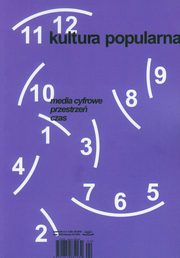Siedmioro karłów z Auschwitz, które „Doktorowi Śmierć zawdzięczały życie”. O bohaterach reportażu Kukiełki doktora Mengele Yehudy Koren i Eliat Negev
Seven dwarfs from Auschwitz who “had Doctor Death to thank for their lives” – on the subjects of The Seven Dwarfs of Auschwitz, a nonfiction book by Yehuda Koren and Eliat
Negev
Author(s): Agnieszka KamińskaSubject(s): Social Sciences, Cultural history, Jewish studies, Jewish Thought and Philosophy, Behaviorism, Social development, Criminology, Studies in violence and power, Health and medicine and law, Victimology, Sociology of Culture, History of the Holocaust, History of Antisemitism, Hermeneutics
Published by: Szkoła Wyższa Psychologii Społecznej
Summary/Abstract: A man mistreated day after day – experiencing his own death every day for years, denigrated, beaten, threatened, with no perspectives for the future – should hate his oppressor. The story of a Jewish Hungarian family of dwarfs shows that this is not always the case. In this sketch, the author analyzes the biographical narrations of the chacters of the book, who are clearly ambivalent towards doctor Mengele. It appears that the key to the interpretation of their behavior lies in deep psychological mechanisms. The analysis of the subjects’ narrations shows that Holocaust survivors suffered until the end of their days from, what psychologists and psychiatrists have named, the posttraumatic stress disorder. As the author is not a psychiatrist, she does not discuss PTSD symptoms from a medical perspective. The aim of the study is to look at the memories presented in the book with an approach informed by the humanities and embedded in the context of psychiatric terminology. The main analytical method is hermeneutics (Prot 2009).
Journal: Kultura Popularna
- Issue Year: 45/2015
- Issue No: 03
- Page Range: 108-125
- Page Count: 18
- Language: Polish

